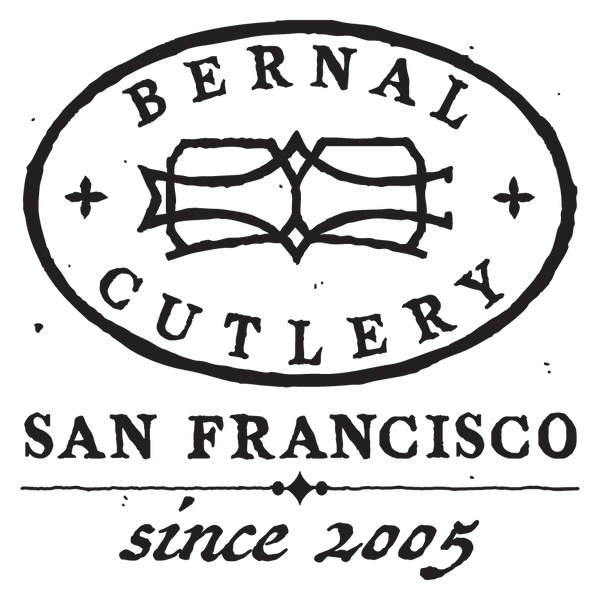-
Currency
-
NEW
- All New Products
- New Kitchen Knives
- New Kitchen Tools
- Latest Vintage
- New Pocket & Outdoor
- New Pantry
-
What's in my Basket Series
- Nite Yun - Lunette
- Scott & Frost Clark - Dad's Luncheonette, Chef & Author
- Angela Wilson - Avedano's
- Susan Kim - Eat Doshi
- Seth Stowaway - Osito
- Dr. Harold McGee - Author
- Ryo Sakai -Kuma Sushi
- Ian McNemar - Woodworker, Instructor
- Anna Voloshyna - Author
- Jorge Martinex Lillard - Lolo´
- Chris Yang - Piglet & Co
- Griffin Wilson - @cabincorn
- Gabe Rudolph - Gestura Utensils
- Molly DeCoudreaux - Food Photographer
- Geoff Davis - Burdell Soul Food
- Jen and Wes - @crazythickasians
- Josh Donald - Bernal Cutlery
- Kelly Kozak - Bernal Cutlery
- Jessica Sullivan - Poppy SF
- Sylvan Mishima Brackett - Rintaro
- Michael Myers - Film Character
- Ali Hooke - @alihooke
- Bruce Hill - The Chef's Press
- Dylan Carasco - Butcher's Guide
- Spencer Horowitz - Hadeem
-
Japanese Knives
- Ashi Hamono
- Gihei Knives
- Godo Tadaharu
- Hatsukokoro
- Hitohira
- Iwasaki Kamisori
- Kaji-Bei
- Kamo Shiro
- Kanehide
- Konosuke
- MAC Knife
- Masakane
- Makoto Tadokoro Marushin
- Morihei
- Myojin Riki Sesakusho
- Nakagawa Hamono
- Naozumi
- Nigara Hamono
- Sakai Kikumori
- Shigefusa
- Tagai
- Takada no Hamono
- Tanabe Tatara
- Tosa
- Tsukasa Hinoura
- Yoshikane
- Yoshikazu Tanaka
- Wakui
-
Global Knives
- Allday Goods (GBR)
- Alma Knife Co. (USA)
- Astral Works (USA)
- Au Sabot (FRA)
- AZ Knives (ARG)
- Benchmade Cutlery (USA)
- Bernal Cutlery (USA)
- Blenheim Forge (GBR)
- Chazeau Honoré (FRA)
- Dexter Russell (USA)
- Eichenlaub Tableware (DEU)
- Florentine Kitchen Knives (ESP)
- Fontenille Pataud (FRA)
- Friedr Herder (DEU)
- J Adams (GBR)
- John Nowill & Son (GBR)
- K Sabatier (FRA)
- Pallares (ESP)
- Roland Lannier (FRA)
- Rolin Knives (USA)
- Silverthorn (USA)
- Steelport Knife Co. (USA)
- Windmühlenmesser (DEU)
- Zirh (TUR)
-
Pocket | Outdoor
- A Wright & Son (GBR)
- Au Sabot Folders (FRA)
- Benchmade (USA)
- Buck Knives (USA)
- David Margrita (FRA)
- Friedr Herder (DEU)
- Fontenille Pataud (FRA)
- Helle (NOR)
- Higonokami
- Hults Bruk Axes (SWE)
- Ibberson (GBR)
- Joseph Rogers & Sons (GBR)
- Kalthoff Axes (SWE)
- MOKI Knives (JPN)
- Morakniv (SWE)
- Opinel (FRA)
- Pallares (ESP)
- Tactile Knife Company (USA)
- Wood Tools (GBR)
- Vintage & New Vintage
-
Styles
- Bernal Cutlery Collaborations
- Knife Sets
- Carving Forks | Knives | Sets
- Japanese Kitchen Knives
- Western Kitchen Knives
- Chinese Style Cleavers
- Bread
- Butchery
- Cheese | Charcuterie
- Pocket | Folding
- Woodworking | Hobby | Craft
- Kamisori Razors
- Table | Steak
- Fixed Blades | Axes | Outdoor Tools
- Scissors | Shears | Snips
- Left Handed
- The Vault
- Vintage
- Sharpening
- Kitchen | Cookware
- Tableware | Service
- Pantry
- Accessories
- Deals
- Gift Cards
- INFO
or
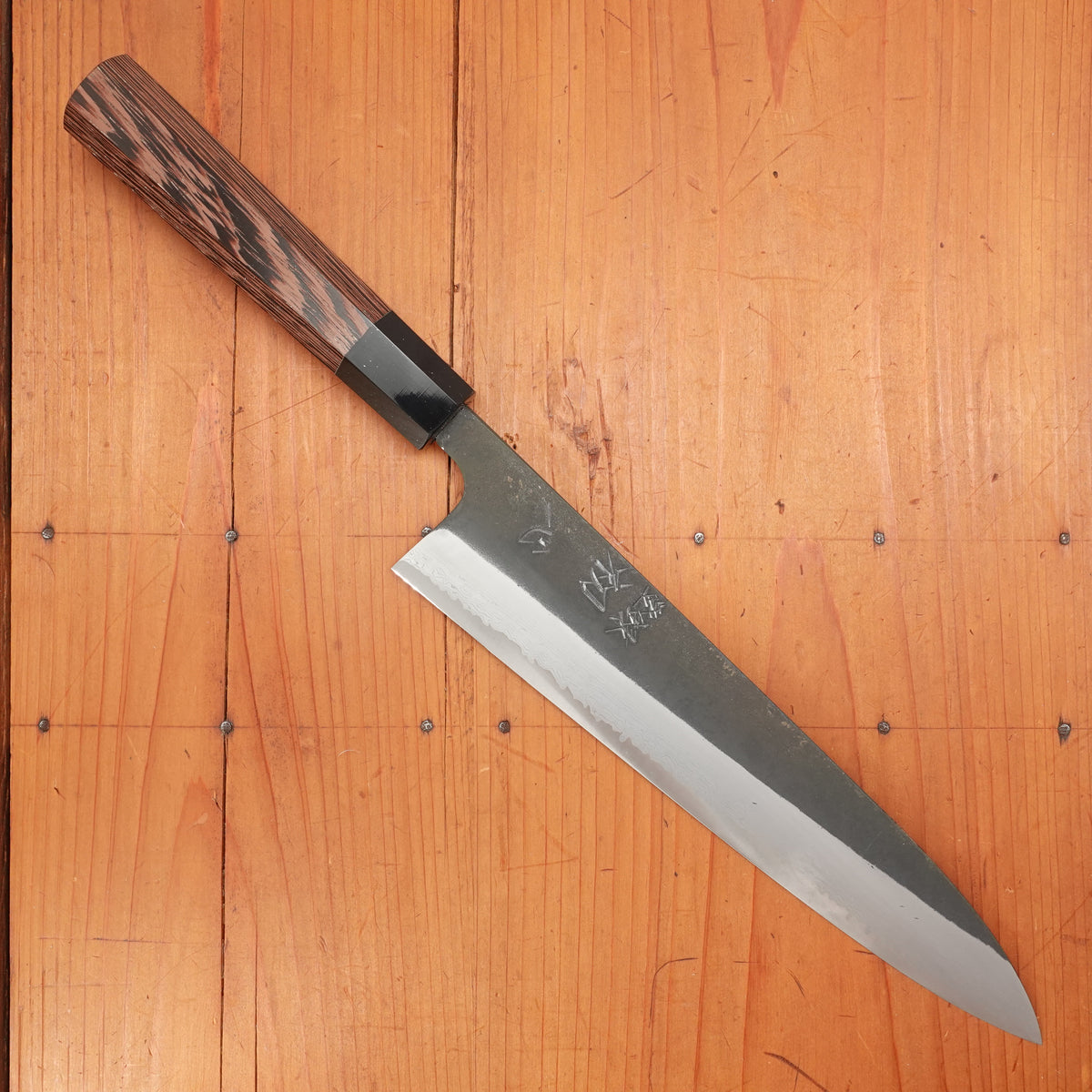
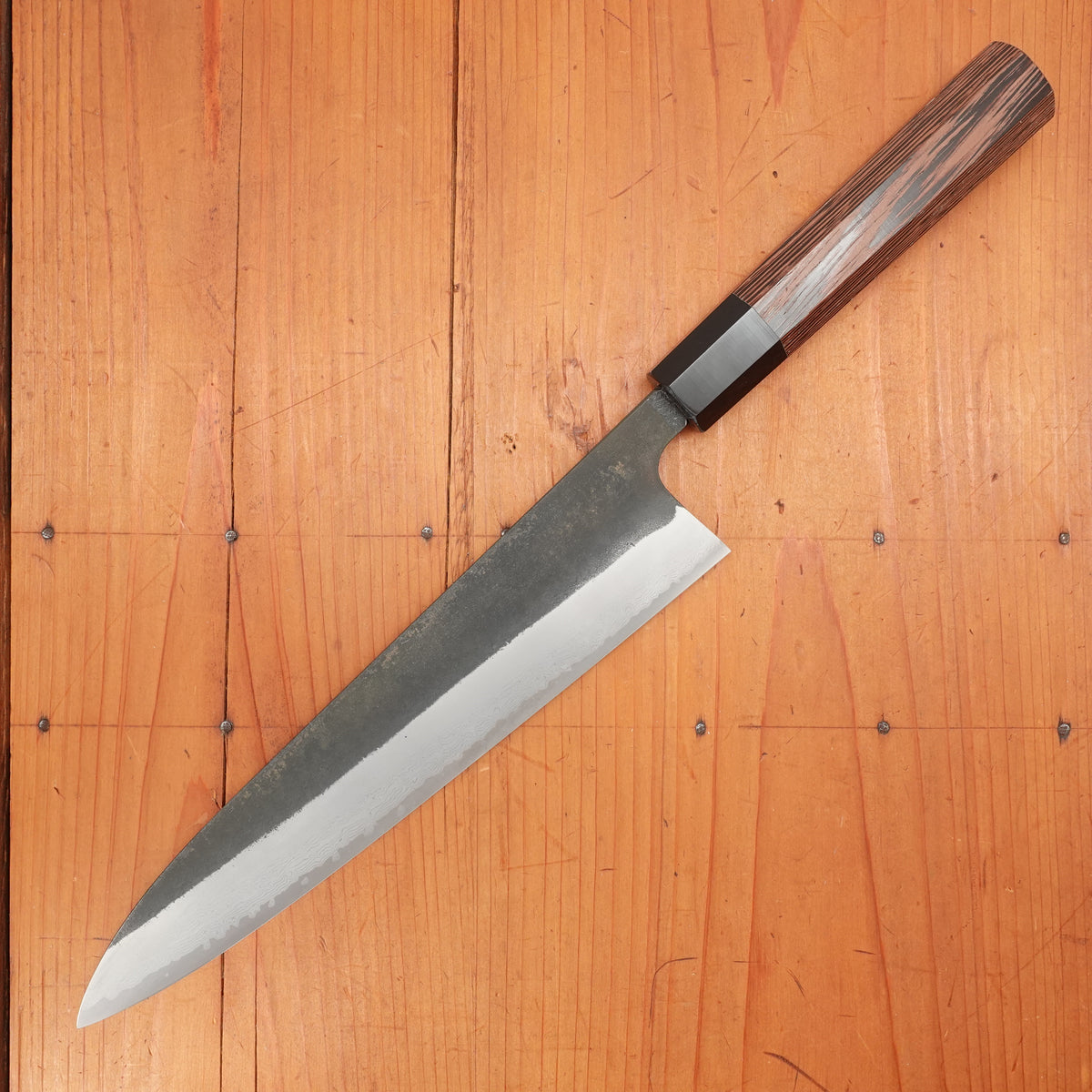
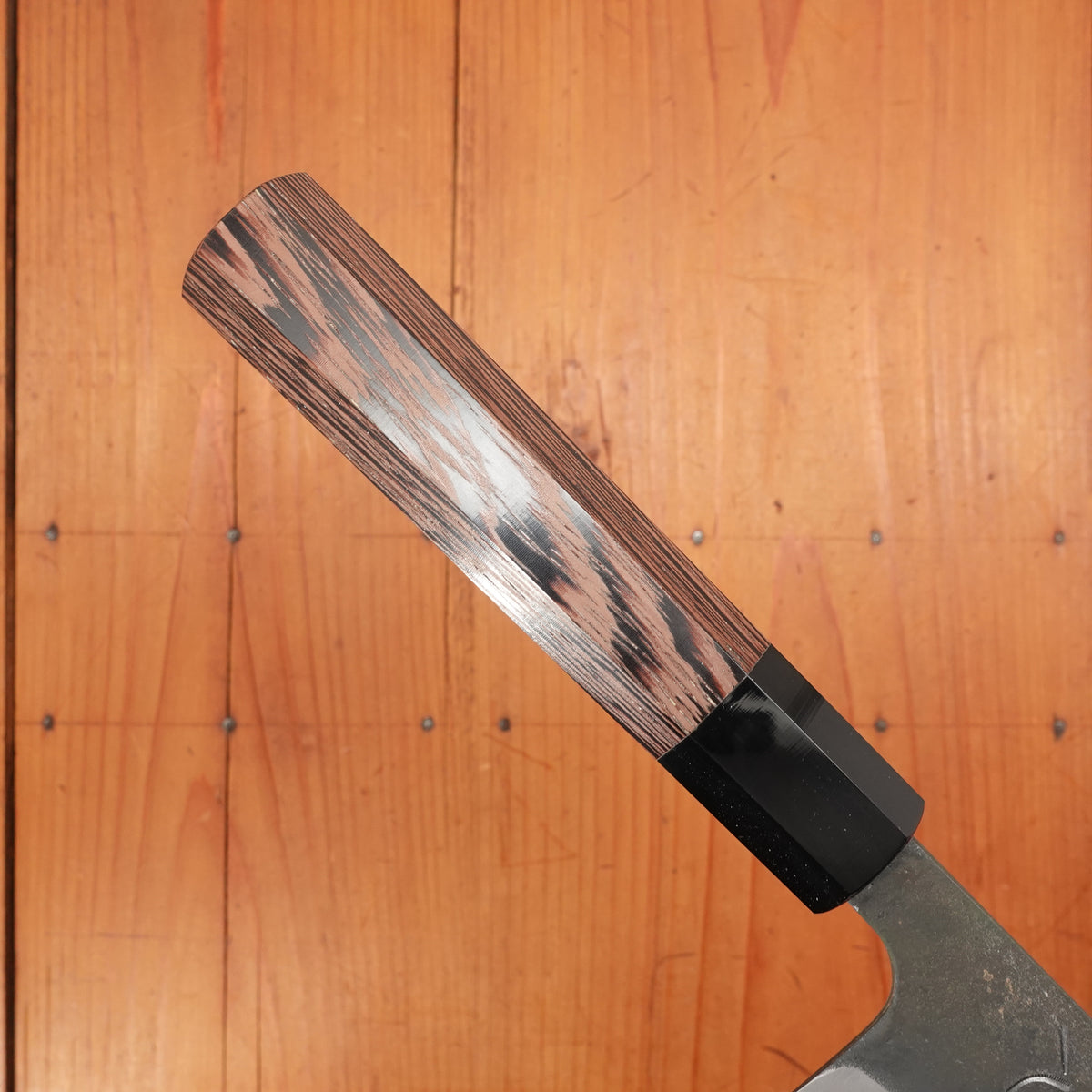
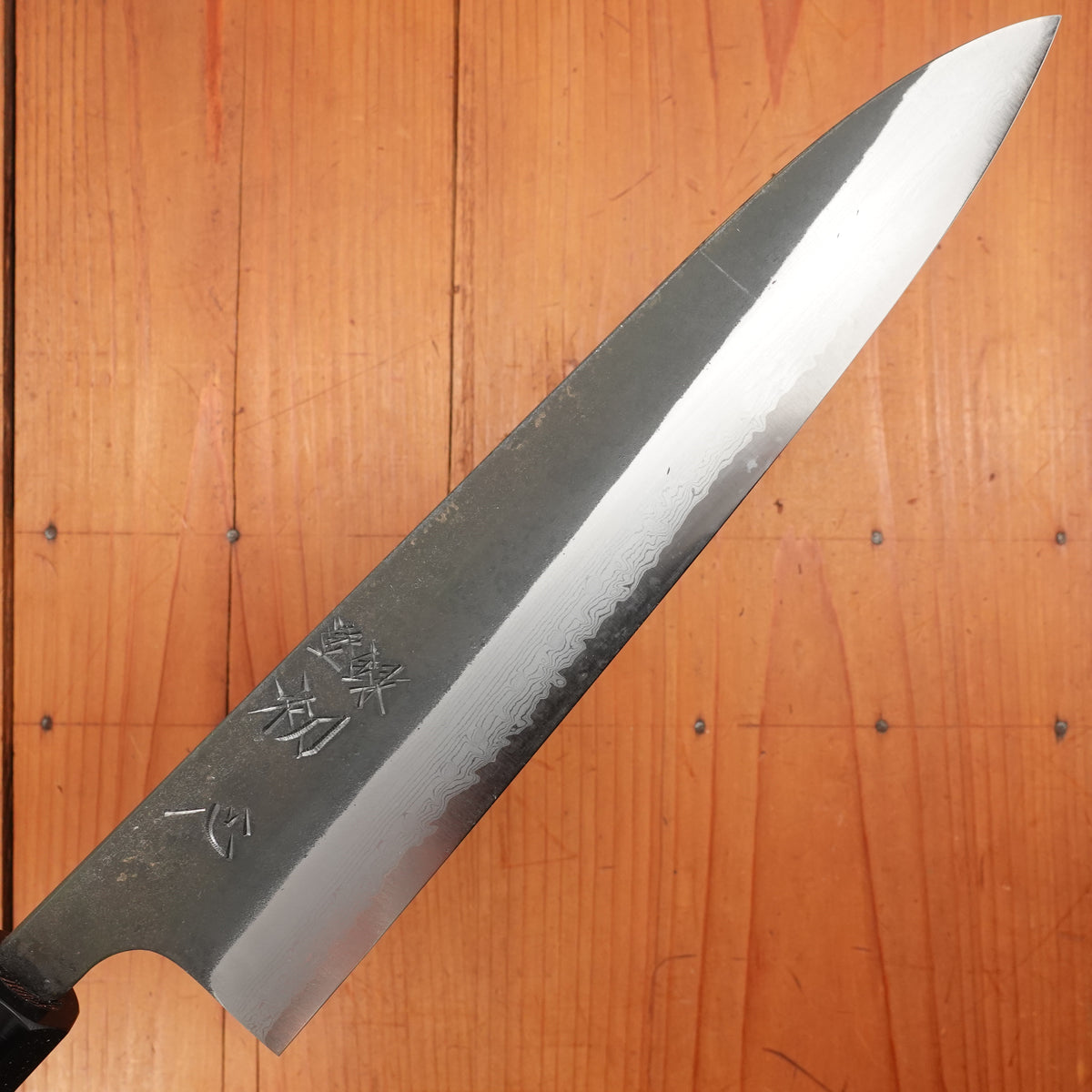
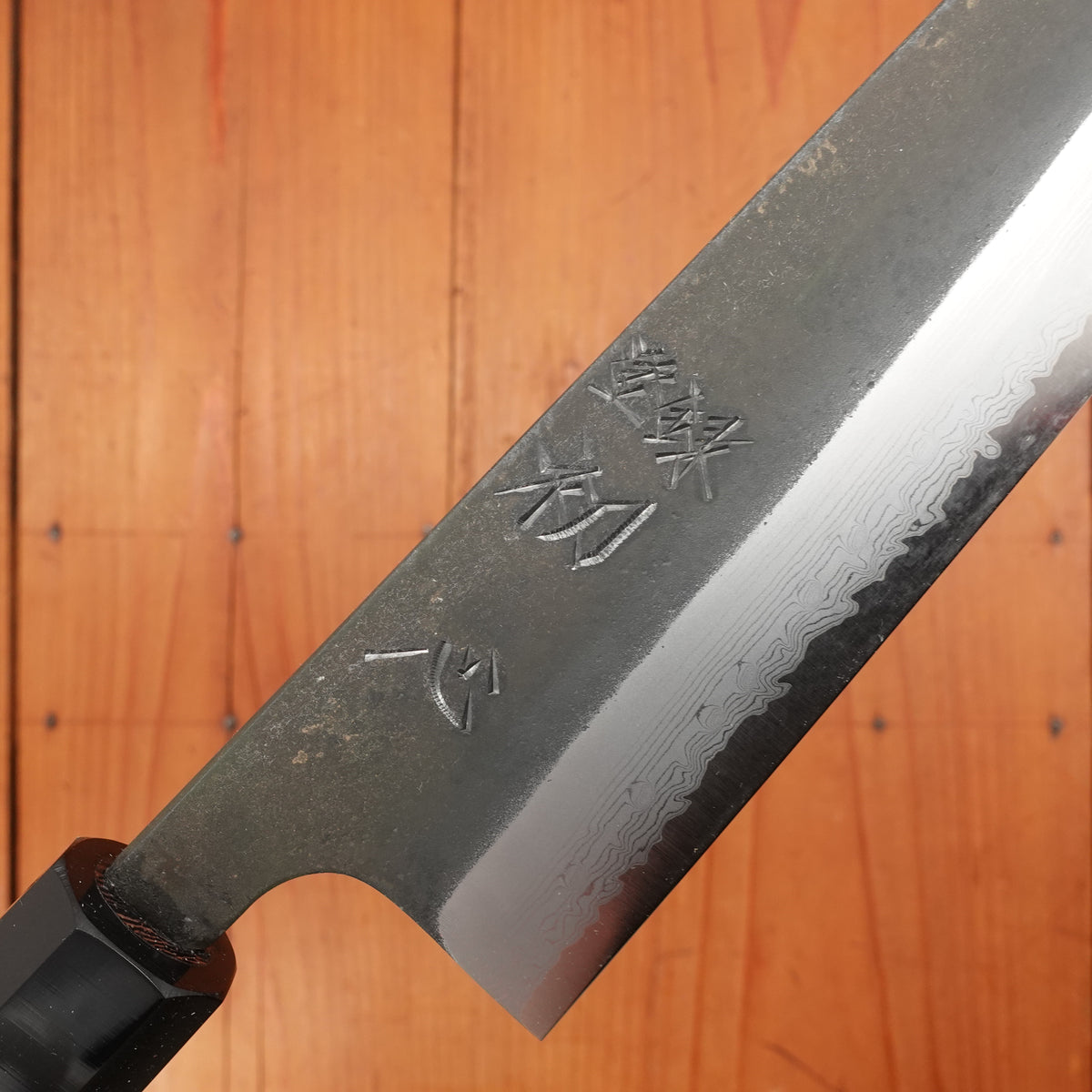
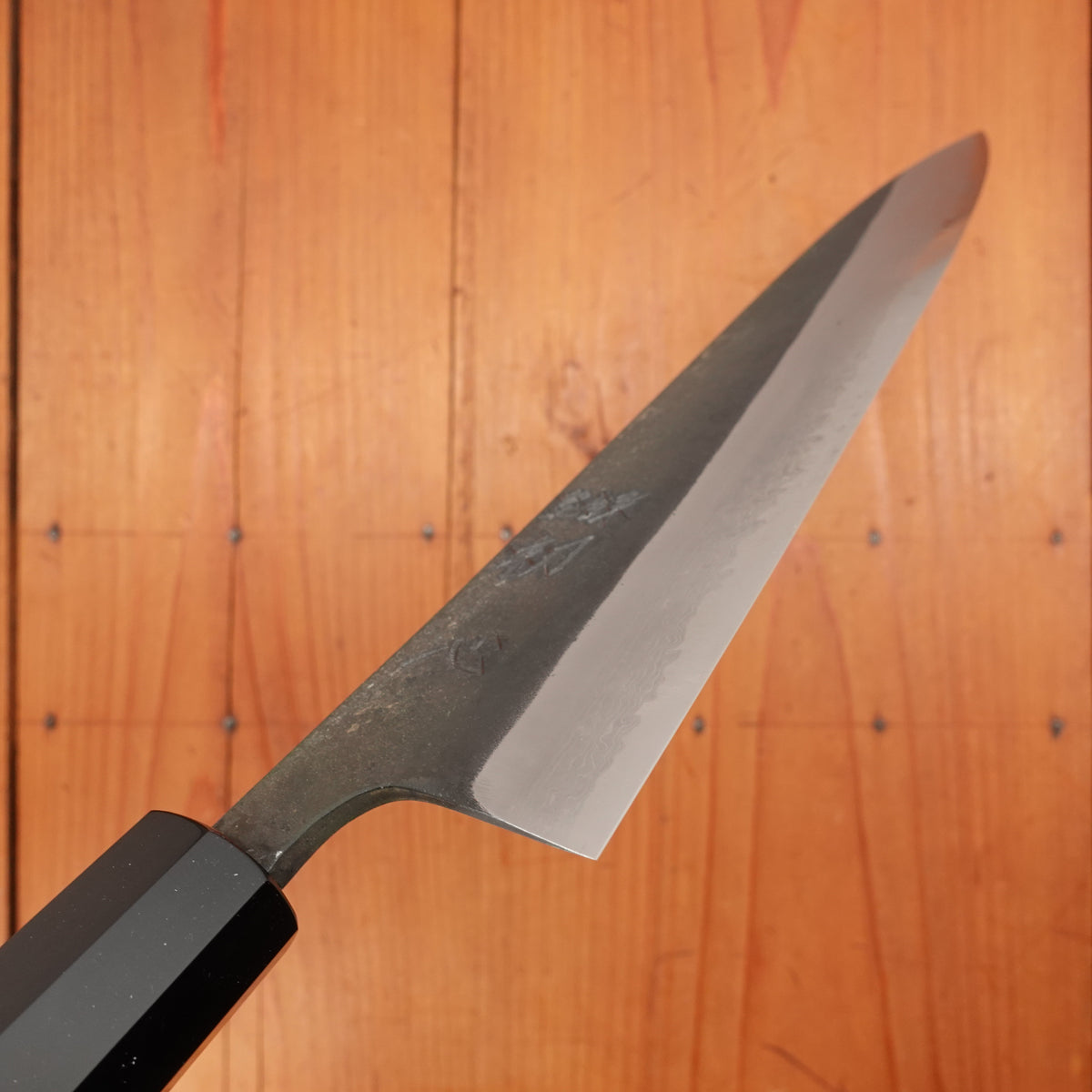
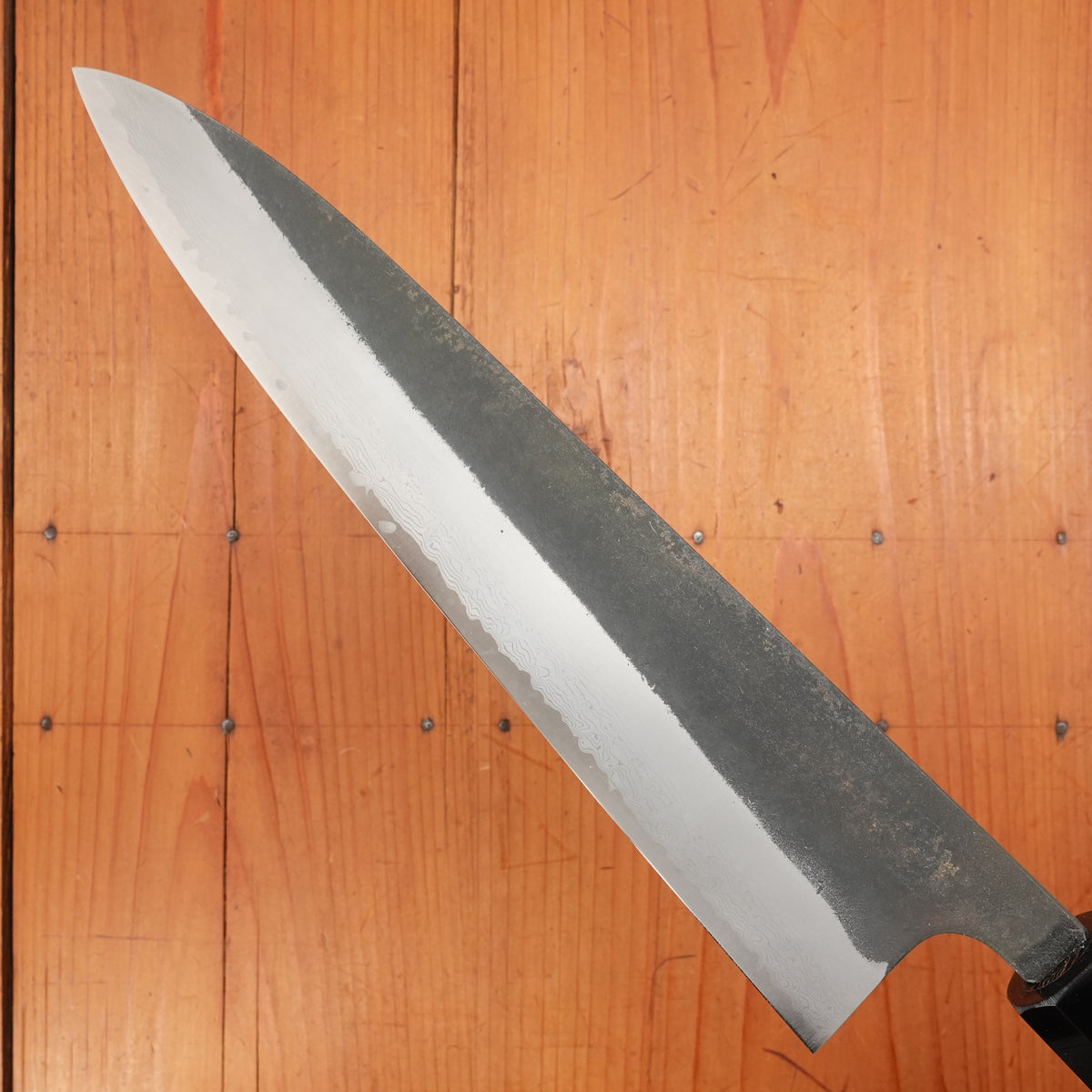
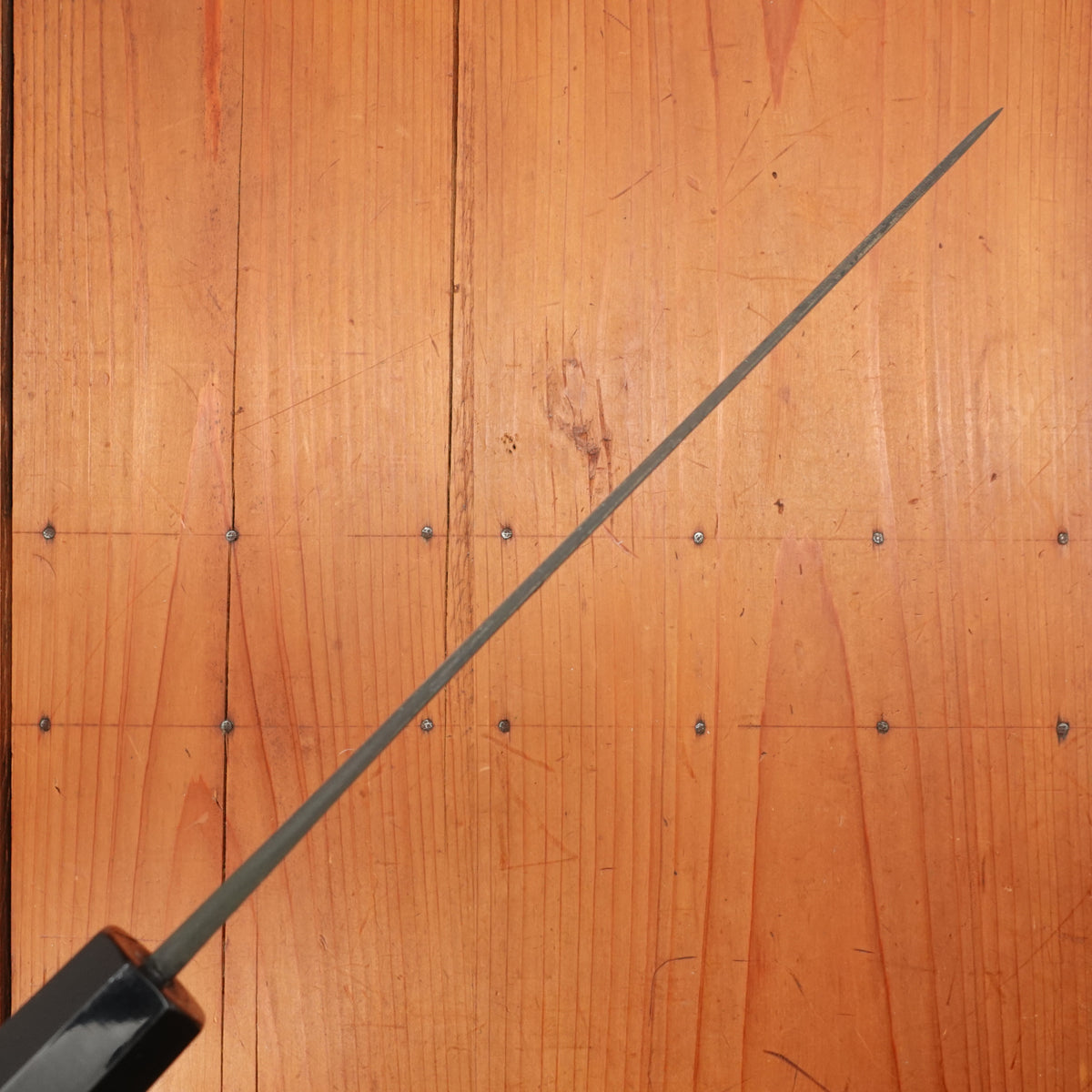
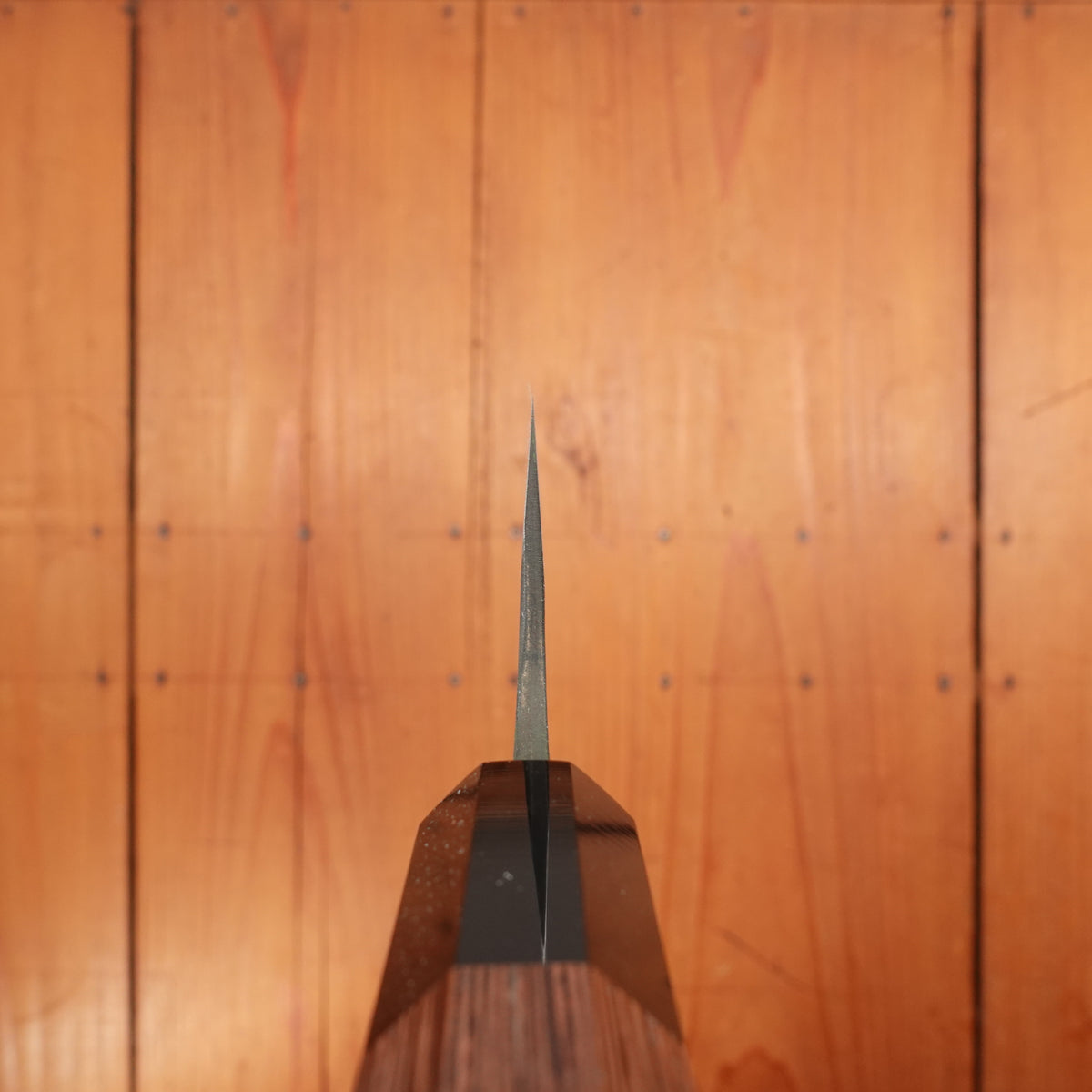
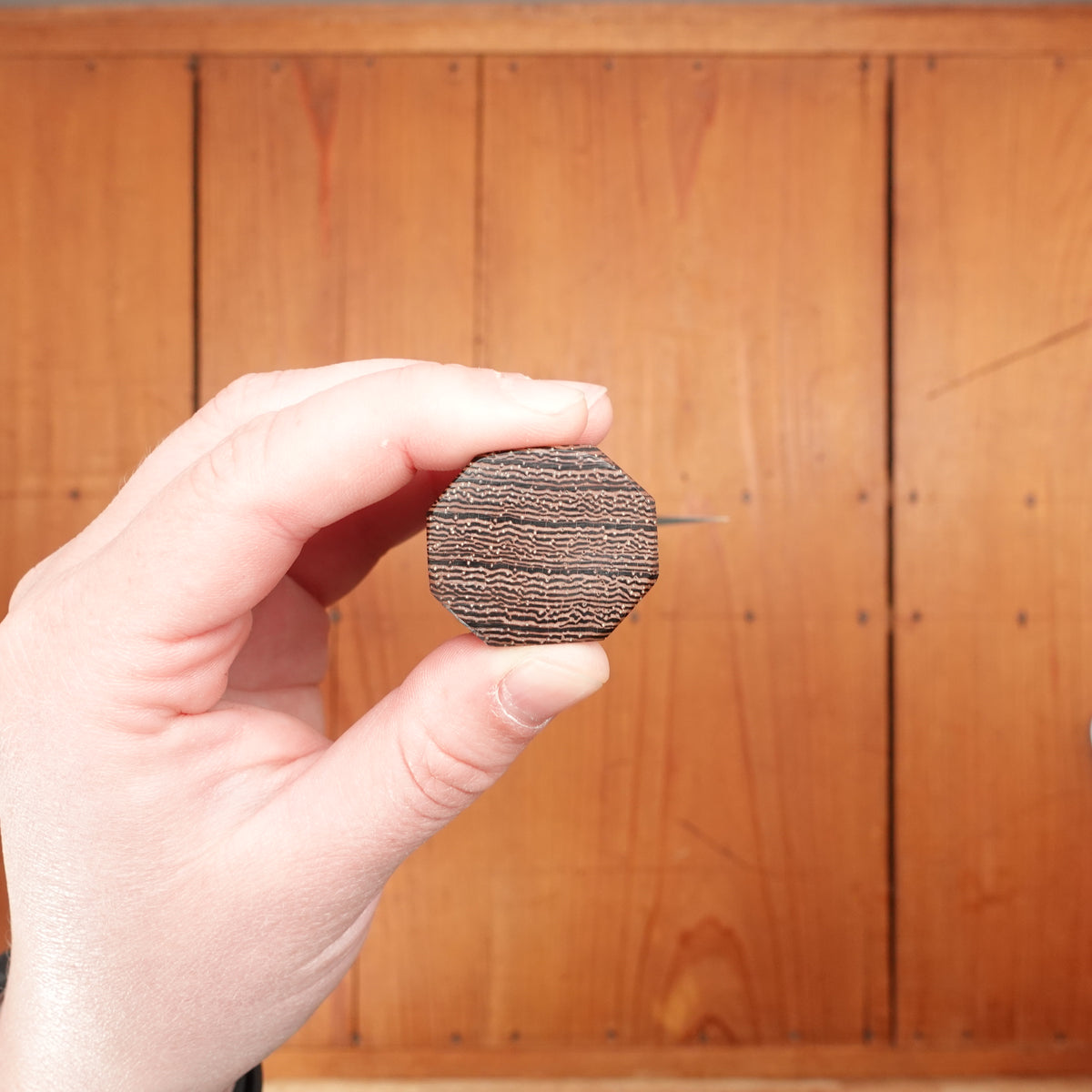
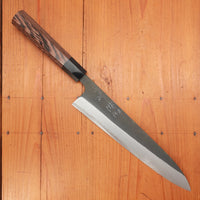
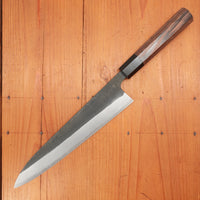
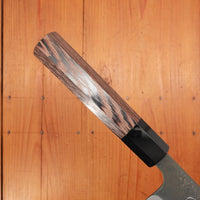
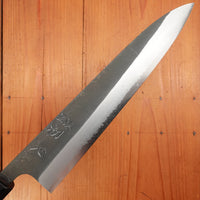
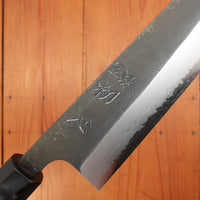
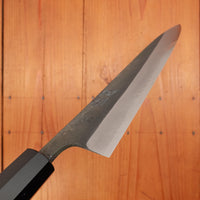
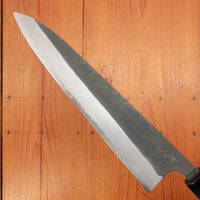
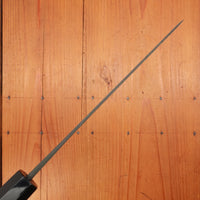
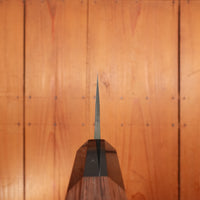
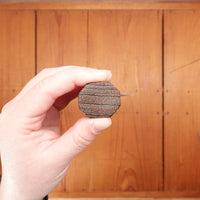
Hatsukokoro Shinkiro 240mm Gyuto Aogami Super Nihei Damascus Kurouchi Wenge
-
Regular Price
-
£302.63
-
Sale Price
-
£302.63
-
Regular Price
-
Sale
Sold Out
-
Unit Price
- /per
- Regular Price
- £302.63
- Sale Price
- £302.63
- Regular Price
- Unit Price
- /per
Hand forged and ground by blacksmith Takahiro Nihei, a very talented younger blacksmith who spent some of his formative years training at Yoshikane Hamono in Sanjo. Nihei-san now runs his own workshop and the Sanjo influence is clear in the robust style with a very pronounced distal taper.
These have a robust feel but a thin grind behind the edge for smooth cutting, but are best suited for those familiar with the demands of a Japanese knife. No twisting or scraping the edge and especially no cutting bones or other hard items.
Aogami super is famous for its edge duration, the addition of tungsten and vanadium to it's alloy make for a toothy cutting feel as the edge begins to dull, aogami super holds its peak sharpness well but really gets its duration from it's ability to cut well as it dulls.
This knife has a hard carbon steel core with iron cladding for added durability. The entire blade will develop a patina with use, especially with acidic foods. Special attention is needed to keep from rusting. Do not leave wet. Hand wash and dry, no dishwasher. Hardwood-end grain or softwood long grain cutting boards are preferred; avoid bamboo and plastic cutting boards. Rust can be removed with a light abrasive
Steel Type: Aogami Super
Handle Material: Wenge
Weight: 230 grams
Height at Heel: 50 mm
Overall Length: 403 mm
Cutting Edge: 252 mm
Thickness(at heel): 4 mm
This is a carbon steel knife. Carbon steel is expected to develop a dark patina with use. It needs to be hand washed and dried immediately after use. Do not air dry. Do not put it in the dishwasher. Long exposure to moisture and debris will result in rust. Any rust development should be removed with a light abrasive.
Twisting, scraping, and heavy use, as well as use on hard and very dense objects can lead to edge damage. Use on a quality wooden cutting board will help the knife stay sharper for longer. Use on hard surfaces like plates and bamboo will reduce the edge life and can result in edge damage. Special attention needs to be taken to prevent edge damage. Scraping, twisting and forceful as well as using on hard or very dense foods can result in chipping.
We recommend hand sharpening on whetstones. We have found that most Japanese knives perform best at a finer finish starting around 4000. Avoid pull through sharpeners and non-water cooled mechanized sharpening. Ceramic honing rods are preferred.
Recently Viewed
About Bernal Cutlery
We are a full-service cutlery shop offering sharpening services, Japanese and Western culinary knives, vintage knives, outdoor, pocket and craft knives, cooking tools and accessories. We also offer knife skills and sharpening classes, and more.
We are proud to serve kitchen professionals, knife enthusiasts and home cooks alike. Located in the Mission District of San Francisco, California.
766 Valencia Street, SF, CA 94110
1 Ferry Building, Ste. 26, SF, CA 94110
